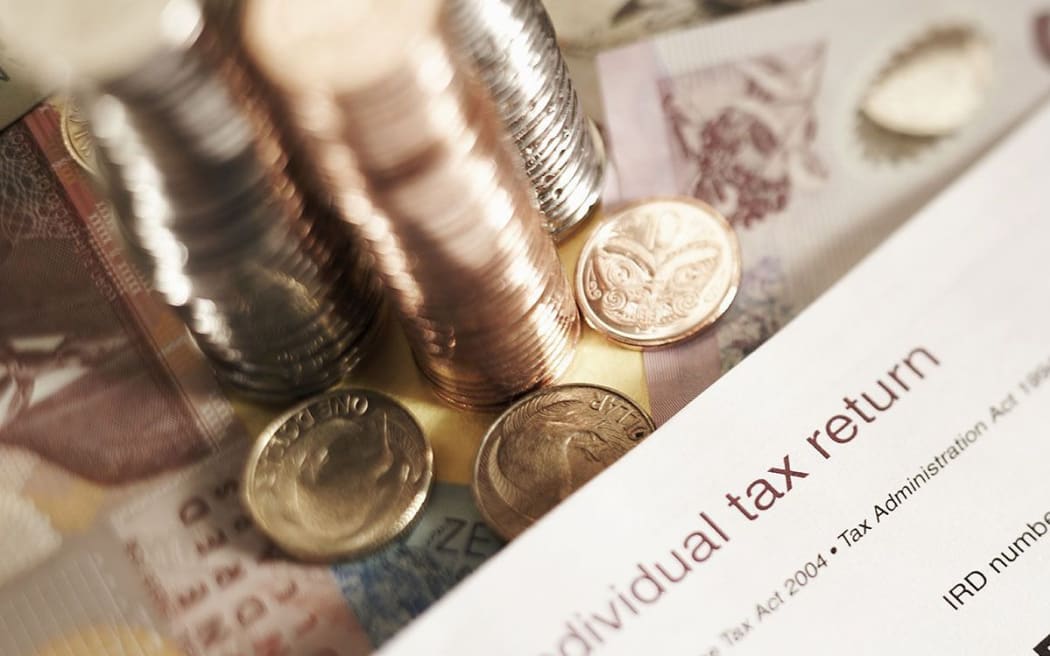Some say unfair, others cry tall poppy syndrome - tax has been turned into a political football over a new report revealing the wealthiest New Zealanders are paying an effective tax rate of just 8.9 percent.

Photo:
The Inland Revenue Department's report on taxing the rich - or the High Wealth Individuals Research Project to give it its official name - got a lot of backs up about how much tax the rich don't pay.
The headline message in revenue minister David Parker's press release was 'IRD report shows wealthy NZers pay much lower tax rates than other earners' - a message that missed out a vital qualifying word and set off angry alarm bells.
The report used specially introduced powers to get 311 of the country's wealthiest families to declare assets and income that normally wouldn't be publicly available information.
It turns out a large slice of their income isn't subject to taxes at all.
The survey measured both realised and unrealised gains on investments, including property and businesses that had appreciated in value - during a time of high inflation.
When you add up all that extra money and call it taxable income, the group's effective tax rate drops to just 8.9 percent - less than half the rate of most New Zealanders.
'Effective' was the missing word.
The report's release led to some misleading headlines and comment along the lines of that our wealthiest pay less tax than your average New Zealander.
But the survey says in 2018, the average amount of tax paid by families in the group was $642,000.
Parker's press release also says this work was not about "attacking the rich".
But effectively, it kind of was.
The NZ Herald's Wellington business editor, Jenée Tibshraeny, says there's no secret that this is a pet issue of Parker's.
"David Parker is of the view that the tax system is not fair," she says. "He would like to make it fairer and I think if he had his way, he would. But there's always that view to balance with politics - and the politics of being re-elected.
"What's fair for one person might be different to what's fair to someone else. Tax is inherently values-based and it is not clear cut. So you could just say 'we'll hand this issue over to some policy experts' but that does not solve the issue because while you might come up with a beautiful policy that is efficient, simplistic and works, it might not be considered fair by some people."
And 'fairness' also depends on your political hue, what phase of life you're in, and what you're trying to achieve by taxation - are you trying to get more revenue or do some social engineering, such as taxing emissions?
"It's in the eye of the beholder," Tibshraeny says.
"Some of the uber-wealthy will say 'well we have taken risks, we've made all these sacrifices with our families, with our spare time; we've worked super-hard, we employ all these people, we make New Zealand a better place - so why are you targeting us?' It comes back to those values."
The obvious conclusion the report seemed to throw up was the introduction of a new capital gains tax, but the day after its release, prime minister Chris Hipkins ruled out that happening before the election.
"The report really leaves a question around 'what now?'" says Tibshraeny.
"I think all eyes are on the policy Labour is going to create going into the election. It'll no doubt be testing the mood of the public on the back of this report."
Tibshraeny says one thing is for sure - ahead of any changes, expect to see the wealthy use their immense resources to get lobbying firms on the job to sway things their way.
Find out more about the weird (and wonderful?) world of tax by listening to the full episode.
You can find out how to listen to and follow The Detail here.
You can also stay up-to-date by liking us on Facebook or following us on Twitter.

Photo:


